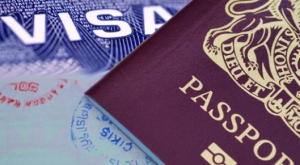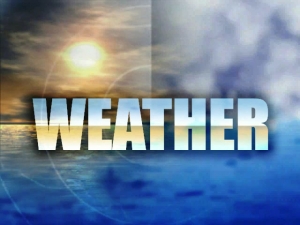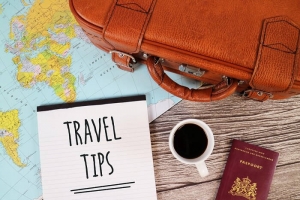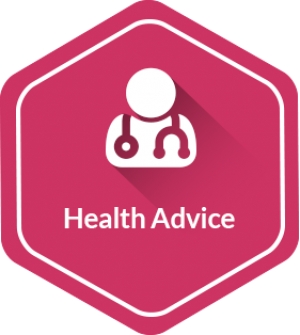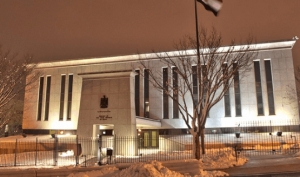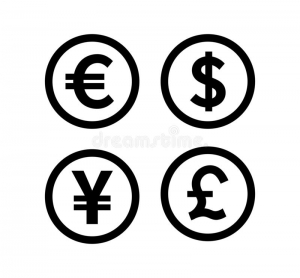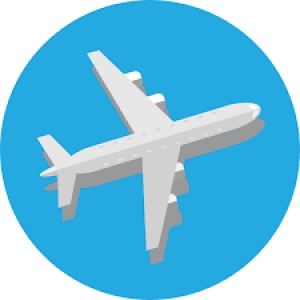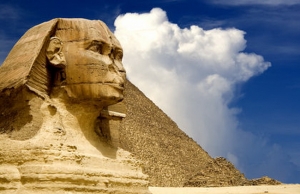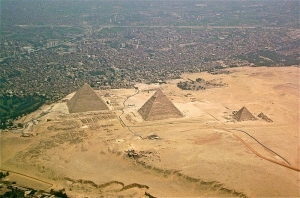+2 0122-345-3028
This email address is being protected from spambots. You need JavaScript enabled to view it.
Super User
Visas and Passports
Visas and Passports
Non-Egyptian visitors arriving in Egypt are required to be in possession of a valid passport. Entry visas may be obtained from Egyptian Diplomatic and Consular Missions Abroad or from the Entry Visa Department at the Travel Documents, Immigration and Nationality Administration (TDINA). It is, however, possible for most tourists and visitors to obtain an entry visa at any of the Major Ports of Entry. Please check with your nearest Egyptian Consular mission for more details concerning visa regulations applying to your citizenship.
Note: Most travelers obtain their Visa upon entry to Egypt, and need not use the forms below to obtain a visa. Visa applications are normally passed out by airlines prior to landing at an Egyptian airport.
Visitors entering Egypt at the overland border post to Taba to visit Gulf of Aqaba coast and St. Catherine can be exempted from visa and granted a free residence permit for fourteen days to visit the area.
Citizens of the following countries are required to be in possession of a pre-arrival visa: Afghanistan, Algeria, Armenia, Azerbaijan, Bangladesh, Bosnia-Herzegovina, Chechnya, Croatia,Georgia, India, Indonesia, Iraq, Iran, Israel, Kazakhstan, Kirghizia, Lebanon, Macau, Macedonia, Malaysia, Moldavia, Montenegro, Morocco, Pakistan, Palestine, The Philippines,Russia, Serbia, Slovenia, Sri-Lanka, Tadzhikistan, Thailand, Tunisia, Turkmenistan, Ukraine, Uzbekistan and all African countries.
There are three types of Egyptian visa:
- Tourist Visa: is usually valid for a period not exceeding three months and granted on either single or multiple entry basis.
- Entry Visa: is required for any foreigner arriving in Egypt for purposes other than tourism, e.g. work, study, etc. The possession of a valid Entry Visa is needed to complete the residence procedure in Egypt.
- Transit Visa.
Major Ports of Entry to Egypt
Airports:
- Cairo International (3 terminals)
- Alexandria Nozha
- Alexandria Borg el Arab
- Luxor, Upper Egypt
- Aswan, Upper Egypt
- Hurghaga, Red Sea
- Sharm El-Sheikh, South Sinai
Marine Harbors:
- Alexandria, Mediterranean
- Port Said, Mediterranean
- Damietta, Mediterranean
- Suez, Gulf of Suez
- Nuweiba, Gulf of Aqaba
- Hurghada, Red Sea
- Safaga, Red Sea
- Sharm El-Sheikh, Red Sea
Overland Entry Posts:
- Salloum, northwestern border (to and from Libya)
- Rafah, northeastern border (to and from Gaza strip, the Occupied Territories and Israel)
- Taba, eastern border (to and from Israel)
Visa Fees
Some examples of Egyptian tourist visa fees at a variety of consular missions:
| Tourist Visa Fees | ||
| Country | Single Entry | Multiple Entry |
| Argentina | 25US$ | 50US$ |
| Australia | 25 US$ | 50 US$ |
| Austria | 25 US$ | 50 US$ |
| Belgium | 25 US$ | 50 US$ |
| Brazil | 25 US$ | 50 US$ |
| Canada | 25 US$ | 50 US$ |
| Cyprus (Cypriot nationals) | 25 Pound; | |
| Cyprus (other nationals) | 25 Pound; | 50 Pound; |
| Denmark (Danish nationals) | 250 K | |
| Denmark (other nationals) | 250 Kr | 500 Kr |
| Finland (Finnish nationals) | 250 Mk | Mk |
| Finland (other nationals) | 250 Mk | 500 Mk |
| France | 25 Euro | 50 Euro |
| Germany (German nationals) | 25 Euro | |
| Germany (other nationals) | 25 Euro | |
| Greece | 25 Euro | |
| Holland | 25 Euro | |
| Indonesia | 45,000 Rp | 60,000 Rp |
| Ireland | 25 Euro | 50 Euro |
| Italy | 25 Euro | 50 Euro |
| Japan | 25 US$ | 17,000 Yen; |
| Malaysia | 46 M$ | 57 M$ |
| Norway (Norwegian nationals) | 250 Kr | |
| Norway (other nationals) | 250 Kr | 215 Kr |
| Portugal | 25 Euro | |
| Russia (Russian nationals) | 53,000 Rub | |
| Russia (other nationals) | 85,000 Rub | |
| Singapore | 46 S$ | 58 S$ |
| South Korea | 15,000 W | 20,000 W |
| Spain | 25 Euro | 50 Euro |
| Sweden | 25 $ | 50 $ |
| Switzerland | 50 SF | 90 SF |
| United Kingdom | 25 Pound; | 50 Pound; |
| United States (US nationals) | 25 $ | |
| United States (other nationals) | 25 $ | 50 $ |
(All above figures are correct at the time of posting but may be subject to change without prior notice)
Exemptions from Visa Fees
Egyptian visa fees do not apply to the following:
- Holders of diplomatic passports.
- Officials of international organizations and specialized agencies and state delegates to conferences.
- Arab League officials.
- Non-national spouses of Egyptian nationals.
- Non-national members of the clergy, prominent scientists, journalists and members of official cultural, educational and sports delegations.
- Non-national students studying in Egyptian institutions.
- Non-diplomatic personnel of diplomatic and consular missions affected in Egypt.
- Parents, siblings and adult children of members of the diplomatic and consular corps affected in Egypt.
- Nationals of Cyprus, Denmark, Finland, Germany, Norway, Russia and the United States are partially exempt from Egyptian visa fees and will, therefore, pay a reduced fee.
Visa Exemptions
The following are exempt from visa requirement when visiting Egypt:
- Nationals of Bahrain, Jordan, Kuwait, Libya, Oman, Saudi Arabia, Syria and the United Arab Emirates.
- Holders of diplomatic passports of Argentina, Bosnia Herzegovina, Italy, Malaysia, Malta, Singapore, the Slovak Republic and Turkey.
Residence in Egypt for Foreign Nationals
Egypt grants legitimate foreign nationals the right for temporary residence in the country. There are two main cases of resident permits in Egypt:
- Special Residence: is usually granted for a period of 10 years, renewable. Special residence is granted to those born in Egypt prior to 26/5/1952 or those having resided in the country for the 20 years preceding 26/5/1952 and whose stay has been uninterrupted; it is also granted to their wives and minor children.
- Ordinary Residence: is granted for a period of either 3 or 5 years.
Three-Year Residence
Non-nationals are entitled to obtain temporary 3-year residence (renewable) in Egypt if they belong to any of the following categories:
- Non-national husbands of Egyptians.
- Children:
- Minor children entitled to special or ordinary residence in like manner to their deceased father.
- Adult children whose father is entitled to special, ordinary or 3-year residence provided a source of income is available to them.
- Adult Palestinian male children of those employed by the Department for the Governor General of Gaza, or of those retired there from, who have completed their studies and are not working in the country.
- Those employed by the government, public institutions, public sector companies and public business sector.
- Palestinians employed by the Department for the Governor General of Gaza and those retired therefrom.
- Palestinians in possession of travel documents issued solely by Egyptian authorities who have been resident in Egypt for a period of 10 years.
- Non-nationals who receive a monthly pension from the National Authority for Insurance and Pensions.
- Non-national residents of homes for the elderly and disabled.
- Political refugees.
- Refugees registered at the UN Higher Commission for Refugees (UNHCR).
- Spouses of those non-nationals entitled to special or ordinary residence.
- Egyptian spouses who forfeited their nationality of origin following marriage to non-nationals and the acquisition of the latter's citizenship.
- Spouses and children of those non-nationals exempt from residence permits and restrictions.
- Non-nationals who, for any reason, waived their entitlement to special or ordinary residence.
- Those non-nationals employed by the Swiss Institute for Architectural and Archeological Research in Egypt.
- Non-nationals who, according to international treaties, are entitled to obtain 3-year residence.
- Those granted approval on 3-year residence from the Ministry of Interior.
- Spouses and children of those non-nationals entitled to 3-year residence under any of the previous cases.
Five-Year Residence
Non-nationals are entitled to obtain temporary 5-year residence (renewable) in Egypt if they belong to any of the following categories:
- Investors.
- Egyptians and their minor children who forfeited their nationality of origin due to their admission to a foreign citizenship.
- Children:
- Of Egyptian mother.
- Whose father was granted Egyptian citizenship.
- Adult children whose mother is entitled to special, ordinary or 5-year residence in case of the death of the father.
- Those of age 60 or more who have been resident in Egypt for 10 years provided that a source of income is available to them.
- Non-nationals who, according to international treaties, are entitled to obtain 5-year residence.
- Spouses and widows of Egyptians.
- Spouses of those non-nationals entitled to ordinary residence.
- Spouses and children of those non-nationals entitled to 5-year residence under any of the previous cases.
Special Services
- Foreigners arriving in Egypt on board of ships are granted a permission to visit the port of arrival for 24 hours and catch their ship at the same port. They can also be granted a permission to enter the country for a visit not exceeding a period of 3 days before catching their ship at the port of arrival or at any other port.
- Air passengers transiting in Egyptian airports are allowed entry for a quick trip not exceeding the period of 24 hours. In the event of emergency landing, passengers are entitled to enter Egypt for a period of:
- 24 hours in case of poor weather conditions.
- 48 hours in case of technical faults to the aircraft.
Egypt Weather
Weather in Egypt – Climates of Egypt
Throughout Egypt, days are commonly warm or hot, and nights are cool. Egypt has only two seasons: a mild winter from November to April and a hot summer from May to October. The only differences between the seasons are variations in daytime temperatures and changes in prevailing winds. In the coastal regions, temperatures range between an average minimum of 14° C in winter and an average maximum of 30° C in summer.
Temperatures vary widely in the inland desert areas, especially in summer, when they may range from 7° C at night to 43° C during the day. During winter, temperatures in the desert fluctuate less dramatically, but they can be as low as 0° C at night and as high as 18° C during the day.
The average annual temperature increases moving southward from the Delta to the Sudanese border, where temperatures are similar to those of the open deserts to the east and west. In the north, the cooler temperatures of Alexandria during the summer have made the city a popular resort. Throughout the Delta and the northern Nile Valley, there are occasional winter cold spells accompanied by light frost and even snow. At Aswan, in the south, June temperatures can be as low as 10° C at night and as high as 41° C during the day when the sky is clear.
Egypt receives fewer than eighty millimeters of precipitation annually in most areas. Most rain falls along the coast, but even the wettest area, around Alexandria, receives only about 200 millimeters of precipitation per year. Alexandria has relatively high humidity, but sea breezes help keep the moisture down to a comfortable level. Moving southward, the amount of precipitation decreases suddenly. Cairo receives a little more than one centimeter of precipitation each year. The city, however, reports humidity as high as 77 percent during the summer. But during the rest of the year, humidity is low. The areas south of Cairo receive only traces of rainfall. Some areas will go years without rain and then experience sudden downpours that result in flash floods. Sinai receives somewhat more rainfall (about twelve centimeters annually in the north) than the other desert areas, and the region is dotted by numerous wells and oases, which support small population centers that formerly were focal points on trade routes. Water drainage toward the Mediterranean Sea from the main plateau supplies sufficient moisture to permit some agriculture in the coastal area, particularly near Al Arish.
A phenomenon of Egypt's climate is the hot spring wind that blows across the country. The winds, known to Europeans as the sirocco and to Egyptians as the khamsin, usually arrive in April but occasionally occur in March and May. The winds form in small but vigorous low-pressure areas in the Isthmus of Suez and sweep across the northern coast of Africa. Unobstructed by geographical features, the winds reach high velocities and carry great quantities of sand and dust from the deserts. These sandstorms, often accompanied by winds of up to 140 kilometers per hour, can cause temperatures to rise as much as 20° C in two hours. The winds blow intermittently and may continue for days, cause illness in people and animals, harm crops, and occasionally damage houses and infrastructure.
|
M o n t h |
T y p e |
Cairo Min/ Max |
Alexandria Min/ Max |
Luxor Min/ Max |
Aswan Min/ Max |
Hurghada Air/ Water Average |
Sharm Air/ Water Average |
| Forecast | Forecast | Forecast | Forecast | Forecast | Forecast | ||
| Jan |
C F |
8.6/19.1 47/66 |
9.3/18.3 49/65 |
5.4/23 42/74 |
8/23.8 46/75 |
24/18 75/64 |
24/18 75/64 |
| Feb | C F |
9.3/21 48/69 |
9.3/21 48/69 |
6.8/25.4 44/78 |
9.4/26.1 49/79 |
25/18 77/64 |
25/18 77/64 |
| March | C F |
11.2/23.7 52/75 |
11.3/21 52/70 |
10.7/29 51/84 |
12.6/30.4 54/86 |
26/20 79/68 |
26/20 79/68 |
| April | C F |
13.9/28.2 56/83 |
14.5/23.6 58/75 |
15.7/35 60/95 |
17.5/36 63/97 |
31/25 88/77 |
31/25 88/77 |
| May | C F |
17.4/32.4 63/90 |
16.7/26.5 62/80 |
20.7/39.3 69/103 |
21.1/38.5 71/101 |
35/26 95/79 |
35/26 95/79 |
| June | C F |
19.9/34.5 68/95 |
20.4/28.2 69/83 |
22.6/41 72/107 |
24.2/42.1 76/108 |
37/28 99/82 |
37/28 99/82 |
| July | C F |
21.5/35.4 71/96 |
22.7/29.6 73/86 |
23.6/40.8 74/106 |
24.5/42 76/108 |
40/28 107/82 |
40/28 107/82 |
| Aug | C F |
21.6/34.8 71/95 |
22.9/30.4 73/87 |
23.5/41 74/107 |
24.7/41.3 76/107 |
42/29 108/84 |
42/29 108/84 |
| Sept | C F |
19.9/23.3 68/89 |
21.3/29.4 71/85 |
21.5/38.5 71/101 |
22.2/39.6 72/103 |
38/27 100/81 |
38/27 100/81 |
| Oct | C F |
17.8/29.8 64/86 |
17.9/27.7 64/82 |
17.8/35.1 64/95 |
19.3/36.6 66/99 |
32/25 90/77 |
32/25 90/77 |
| Nov | C F |
12.1/24.1 54/75 |
14.8/24.4 59/76 |
12.3/29.6 54/85 |
14.5/30.2 58/86 |
26/23 79/73 |
26/23 79/73 |
| Dec | C F |
10.4/20.7 51/69 |
11.2/20.4 52/69 |
7.7/24.8 45/76 |
9.9/20.5 50/69 |
26/19 79/66 |
26/19 79/66 |
Egypt Vaccination
Vaccination for Egypt
Evidence of Yellow Fever and Cholera immunizations is required from persons who have been in an infected area within six days prior to arrival. These immunizations must be recorded in the International Certificate of Vaccination, the WHO card, issued by the World Health Organization. This document is obtained from authorized doctors in most countries. Persons without the proper immunizations are subject to a 36-hour quarantine at Cairo Airport.
Vaccinations may be required against yellow fever if arriving within 6 days after leaving or transiting infected areas. Children under one year old are exempt. Other vaccinations may also be required or recommended. Please check with the nearest Egyptian embassy or consulate in your home country before making your travel plans.
Vaccinations & Inoculations
Typhoid Recommended
Polio Recommended
Yellow Fever Only required if arriving from an infected country
Hepatitis A Recommended
Tetanus Recommended
Malaria Recommended (May-Oct.)
Egypt Travel tips
Travel tips
Archeological Sites
Do have a guide with you when exploring archeological sites in the desert. You can get lost and that isn't funny.
Do stay with your guide at all times as some sites are in critical condition and have areas that are in danger of collapse.
Do wear a hat or scarf and sunscreen to protect yourself from the sun when visiting in summer.
Don't climb on or touch any of the monuments.
Don't take photographs where you're not supposed to - the flash from your camera may cause irreparable damage.
Public Transportation
Ladies... do sit next to other women on public transportation.
Ladies... do enter the car assigned for women only (first two cars) on the metro, as other cars may be too crowded.
Do bargain the amount you will have to pay the taxi driver before getting in as some take advantage of tourists (but no fighting, please).
Do shout out the name of the location that you're going to when hailing a taxi.
Do look both ways before crossing the street even if the sign says, "walk".
Don't get on overcrowded buses. It's anything but comfortable.
Ladies
Do be prepared for unwanted attention especially if you're traveling alone. You'll probably be hissed or whistled at in the streets on a fairly regular basis. If you just ignore, there shouldn't be any problems. Egyptians just like to have fun.
Do try not to walk by yourself, always have someone with you, especially if it's down a dark alley. Crime is extremely rare but, just as should always be the case, why take unnecessary chances.
Don't act too friendly toward men you barely know as it could be misunderstood.
Don't talk back to attempts by strangers to talk to you - simply ignore them.
Couples
Do feel free to walk arm-in-arm or, at most, holding holds. (Same sex couples should be even more discrete as homosexuality is far less accepted in Egypt as it is in Western countries)
Don't hug or kiss in public as it may cause problems. Again, holding hands should be as far as you go in public.
Don't be surprised if you see Egyptian men walking arm-in-arm or holding hands as a sign of friendship.
Entering Mosques
Ladies... do wear something to cover your hair when entering a mosque (most mosques provide a scarf for covering your hair at the entrance).
Do wear long decent clothes, covering legs and arms. (This includes men!).
Do take off your shoes before entering or wear shoe covers which can be obtained at the entrance of some mosques.
Do respect the mosques, they are sacred places, and any attempts of smoking, drinking, or sexual behavior in or around a mosque will not be tolerated.
Don't go where you're not supposed to for a couple of reasons:
1- Egypt is one of a just a few Islamic countries that allow non-Muslims into their mosques so staying in designated areas will help preserve this privilege for future visitors.
2- Some of the mosques are very old and some areas may be in need of repair.
Don't visit during prayer time.
Swimming
Ladies... do wear swimming suits on beaches, but survey your surroundings a bit first. Some places are not used to seeing that many tourists and that quick glance around will let you know if others are wearing bathing suits.
Do wear sunscreen at all times - the Egyptian sun can be merciless at times.
Don't sunbathe topless - it is not common in Egypt and it may cause too much attention.
Don't swim wherever there's a black flag up as it means the water is too rough. In the north coast the sea can sometimes be quite dangerous.
Snorkeling and Diving
Do wear sunscreen lotion.
Do stay with your guide, it's not fun getting lost underwater.
Do bring an underwater camera so you can share the amazing things you see with your friends when you get back home.
Don't touch the fish - not all are friendly or harmless.
Don't break, take, or remove any of the coral.
Don't drink and dive!
Don't feed the fish.
Don't fish.
Off-Reading
Don't go off the beaten track without a guide. There are still some landmines buried out there in some parts of the Sinai and the North Coast and not all are marked.
Don't go too far without a guide. The desert here is vast and you can too easily lose your bearings.
Money
Do use common sense.
Do exchange your money in banks or exchange offices.
Do carry around a lot of change: it can be useful when tipping and bargaining. (Only tip when you feel that the person deserves it - just like back home.)
Do use traveler's checks and credit cards - they are accepted in most tourist areas.
Don't carry around a lot of money. Theft isn't common, but one can never be too sure.
Don't put your money or wallet in your back pocket when entering busy or crowded places.
Don't show that you have money.
Photographing
Do take lots of film or extra memory cards - you'll want to take pictures of everything you see.
Don't take photographs of military areas, bridges, embassies, or airports.
Don't use flash photography when photographing ancient monuments.
Don't photograph crowded areas or packed buses or street litter, as some people can be offended.
Don't take your cameras where you won't be using it - entrance fees for cameras cost more than for people.
Driving
Do carry your international driver's license at all times when driving.
Do avoid coming close to buses and other forms of public transportation. If you want to pass them, make sure they know you're there by flashing your lights and honking your horn.
Do check for crossing cars and pedestrians at all times - even when you have a green light.
Do what the traffic policemen say - even if it goes against what you've been doing all your life.
Don't try to come close to diplomatic convoys - reduce your speed and keep away.
Don't exceed 100 km/hr on highways.
Customs
You may bring in modest amounts of anything for personal use, except, obviously, illicit drugs, weapons and items of an obscene or subversive nature. Up to one liter of alcohol, 200 cigarettes and a reasonable quantity of perfume is permitted.
In addition, you may purchase one liter of alcohol upon arrival at Cairo International Airport Duty free shop and another 3 liters along with 3 packs of cigarettes within 48 hours from any of the duty-free shops around Cairo.
Duty Free Shops upon departure offer shoppers a reasonable range of spirits, cigarettes, perfumes and gifts. Alcohols and cigarettes are cheaper than all European Duty-Free prices.
Egypt Health Advice
Egypt Health Advice
When traveling to any new destination internationally, visiting a personal physician or health clinic, at least four weeks before departure, is always recommended. This can allow you to understand the common ailments that may be at your destination, plus, get vaccinations and immunization to ensure you do not catch any infection or illnesses that commonly prevail in the country or the place you are traveling.
Traveling to a new destination can be very relaxing and enjoyable if we follow some common sense steps and bring our medical kit along, which contains all the necessary things. Also, medical travel insurance can be of great use, especially gives you cover in your home country as well, if the need arises for continuing medication or treatment after returning back to your home.
Travelers to Egypt must get a yellow fever vaccination no matter what and is recommended for all those who are older than one year of age. Generally, no other vaccinations are needed. Hepatitis C is at highest incidence in Egypt but the infection can spread only when sharing contaminated needles, so make sure you stay away from something like this to ensure safety.
Another important factor that you should look for is preparation for heat protection which means carrying a lot of sun block and drinking lot of water that can keep you hydrated all the time. Only bottled water must be used, as waters in the Egyptian cities is said to be highly chlorinated. Also, there should be ample care taken when eating out to prevent the occurrence of travelers’ diarrhea, which is a very common health concern that most people face when traveling to a new country. The water of Nile River should never be consumed. Medical treatment can be very expensive sometimes so travel insurance must always be included in your budget. Also, medical facilities that are good are accessible only in some major cities of Egypt.
Your Health in Egypt
Many tourists have health concerns when traveling to other countries revolving around the cleanliness of the water, the safety of the food, potential illnesses and the standard of hospital care. Keep reading and we will give you some facts as well as some good information we've learned from our long experience in leading tours.
When visiting Egypt, don't drink the tap water - it's highly chlorinated. However, with enough time in Egypt, you could potentially grow accustomed to the water. This doesn't mean that the tap water is polluted; it simply means that you are not used to it, and you might get stomach problems. This happened to me while I was visiting the UK and attempted to drink the tap water - I got stomach cramps. I was simply not used to water there. It's a similar situation in Egypt. It is advisable to drink bottled water during your entire holiday. That is why I would advise strongly that you don't drink the tap water, and use it only for washing and brushing your teeth.
Tourists are often advised not to eat the many fresh fruits or vegetables, but this means missing out on some of the best taste sensations you will ever have! In Egypt, it is safe to eat fruit and vegetables, as long as the food has been washed correctly! You will find that any good hotel or cruise boat will wash them before cooking, so don't worry! Avoid eating in really cheap places or local outlets. If you wish to eat local food, stick with Falafel, or what Egyptians called Tammia, preferably from a known place such as the restaurants on the streets of Downtown. Tammia is very cheap, very safe and a very tasty food.
When you embark upon a Nile cruise, you may get diarrhea due to many contributing factors, such as the class of boat you are staying in, the quality of food and cleanliness habits that you follow.
We always spend the time to fully brief the guests on the tips and tricks of a successful Egyptian holiday including any and all health tips before the cruise.
Then ...How come?
At this point, most people would assume that the food causes this problem; others would say it was the water! But I was always convinced that it was neither! Since we all ate the same food and we only drank bottled water, and a few of us still caught this “bug”, I decided to start to monitor the eating habits of the groups more closely! Eventually, I was able to find the real reasons for these illnesses, and they were:
1.Most of the time the meals are an open buffet. I noticed that some of the passengers ate each meal as if it was their last! What they were doing was completely changing their eating habits, causing total overload on their stomach’s capacity. Not to mention that at least 5 to 7 items on the buffet were completely new to them. I advised them to remember that the food on the boat is actually never-ending, and they should be aware not to change their eating habits and take it easy.
2. Whenever we came back to the boat, after finishing a visit, some passengers would rush to their fully air-conditioned cabins and “crash” on their beds to rest. They forget that the air conditioning is on full power, and they are wet from walking. Here comes the danger! They easily catch a cold, get back pain and their natural immune system becomes vulnerable, hence the sickness, diarrhea, vomiting, and dehydration.
So the solution was simple! I stressed to them that they should not rush to their cabins after each tour, but to try and acclimatize first, by sitting for a while in the lobby before going to their cabins, and once in their cabin, they should turn the air-conditioning off immediately, turning it back on whenever the cabin became warm.
The results were amazing! In the following weeks, most of the time, none of my group members had any illnesses.
So, dear traveler, please remember the following if you go on a cruise boat:
1. Exposure to extreme heat and cold is bad for your immune system! Please take the time to acclimatize your body before going to your cabin!
2. You know what your stomach is like! Just because you are on holiday don’t treat it differently, if you have a sensitive stomach and tend to stay to a certain type of diet, try and do the same when you are Egypt. Err on the side of caution; you do not want to ruin a great holiday because you have eaten something you would never have tried at home. Some people are lucky, they seem to be able to consume anything and everything, others become ill by simply looking at a different food. You may feel brave by trying something different, but sometimes you are better by being a coward and enjoying your stay. Also many forget to wash their hands before eating. this contributes a lot to the cause of the sickness.
To cure many types of diarrhea, there is an excellent antibiotic called Anitnall or Entoseed, (local drug equivalent for Imodium) which works very fast on removing the worst of the symptoms, and putting you back on your feet.-You can buy them at any pharmacy without a prescription!
MALARIA TABLETS:
THERE IS NO MALARIA IN EGYPT!
Egypt hasn’t had a malaria case in the last 50 years. Some travelers may take these tablets during their stay and don’t realize that one of the many side effects of the tablets is diarrhea!
So, my advice is not to don't take malaria tablets, simply you don't need them. I have often seen people ruin their whole trip because they were advised to take these tablets. They get diarrhea on a daily basis and end up staying in bed, while the rest of their party are out enjoying themselves! Some tourists come to Egypt taking these tablets because their doctor advised them to do so! Unfortunately, too many doctors giving such advice promptly once they know that Egypt is located in Africa, So they immediately advise their patients to take these tablets, two weeks before commencing their trip.
Your Medical Care:
I would advise you to bring a supply of any medicines that you take regularly and bring the prescription too. Feel safe in the knowledge that in the unlikely event of serious trouble, your hotel or cruise boat staff will find, and provide, a doctor for you instantly.
And don't forget that is always a good idea to bring mosquito repellent for open-air night events! It helps to minimize the "mosquito annoyance factor"!
Egypt Embassies Abroad
Egypt Embassies & Consulates List
Australia :
Egyptian Embassy 1 Darwin Avenue Yarralumla, Canberra, ACT 2600, Tel: (62) 273-4437/8
Egyptian Consulate -- Melbourne 124 Exhibition Street, 9th Floor Melbourne, Victoria 3000, Tel: (3) 654-8869 / 8634
Egyptian Consulate -- Sydney 335 New South Head Road Double Bay, Sydney NSW 2028, Tel: (2) 362-3482/8, 327-5538
Canada:
Egyptian Embassy 454 Laurier Avenue East Ottawa, Ontario KIN 6R3, Tel: (613) 234-4931 / 35/58
Egyptian Consulate -- Montreal 3754 Cote des Neiges Montreal, Quebec H3H 7V6, Tel: (514) 937-7781/2
France :
Egyptian Embassy 56, Avenue d'Iena 75116 Paris, Tel: (1) 47 20 97 70 / 47 20 75 97
Egyptian Consulate -- Paris 58, Avenue Foch 75116 Paris, Tel: (1) 45 00 84 64 / 45 00 49 52 /45 00 69 23
Egyptian Consulate -- Marseilles 166, Avenue de Hamburg 13008 Marseilles Tel: 91 25 04 04
Germany :
Egyptian Embassy Konprinzen Str 2 Bad Godesberg, Bonn, Tel: (228) 364000/8/9
Egyptian Embassy -- Berlin Branch Berliner Str 22 Pankow, Berlin 3, Tel: (30) 482-5095
Egyptian Consulate -- Frankfurt Eysseneck Str 52 6000 Frankfurt/Main I, Tel: (69) 590557/8
Greece :
Egyptian Embassy 3 Vassilissis Safies Street Athens, Tel: (1) 361-8612/3
Ireland:
Egyptian Embassy 12 Clyde Road Dublin 4, Tel: (1) 606566 / 718
Japan :
Egyptian Embassy I-5-4- Aobadai Meguro-Ku, Tokyo 171, Tel: (3) 37 70 80 22
Jordan :
Egyptian Embassy 3rd Floor, Jebel Amman Zahran Street Amman, Tel: (6) 641375/6, 641705
Egyptian Consulate -- Aqaba Al-Wahdat Al-Jarbiyya Al-Istiqlal Street Aqaba
Netherlands :
Boweg I-2597 The Hague, Tel: (70) 354-2000 / 4535
Saudi Arabia :
Egyptian Embassy Sharia Al-Jama'a Al-Mojram Khartoum, Tel: (11) 77646/7, 72836
Egyptian Consulate -- Khartoum Sharia Al-Jamhuriyya Khartoum, Tel: (11) 70291, 72190
Egyptian Consulate -- El-Obeid Al-Midan Al-Kabeer Al-Obeid, Tel: (249) 4167
Egyptian Consulate -- Port Sudan Sharia Kabbashi Eissa Port Sudan, Tel: (249) 2036, 5910
Sudan :
Egyptian Embassy Strandvagen 35 Stockholm Tel: (8) 660-3145, 662-9603 / 9687
Sweden :
Egyptian Embassy Strandvagen 35 Stockholm, Tel: (8) 660-3145, 662-9603 / 9687
UK :
Egyptian Embassy 26 South Street London W1Y 6DD, Tel: (171) 499-2401
Egyptian Consulate -- London 2 Lowndes Street London SW1, Tel: (171) 235-9777
USA :
Embassy of the Arab Republic of Egypt 3521 International CTM.W. Washington DC, 20008, Tel: (202) 895-5400 Fax: (202) 224-4319/5131
Ambassador's Residence 2301 Massachusetts St. NW Washington DC, 20008
Egyptian Consulate -- New York 1110 2nd Avenue New York, New York
Egypt Currency
Monies in Egypt
The local currency is the Egyptian pound (EGP), which is divided into 100 pilasters. The currency is often written as LE (short for French liver égyptienne) or by using the pound sign £. In Arabic the pound is called gunaih , in turn derived from English "guinea", and piaster’s are known as qirsh .
The Egyptian pound has been devaluating gradually over the last several decades. In the 1950's or 1960's, the Egyptian pound was rated almost the same as the British Pound. In fact, the Egyptian pound's value was so high that 1 L.E was nearly equal 1 Gold Pound. Today 1 Gold Pound is worth more than 1,000 L.E.! Nowadays, 1 British pound= 23 L.E and was as high as 25 L.E. up until the time before the economic recession and financial crisis of the last decade when most foreign currencies have lost a small amount of their value against the
Egyptian Pound.
Other currencies value as follows: $1 = 18 L.E 1 EUR= 20 L.E. 1 GBP = 23 LE
Exchanging Money and Banks
Foreign currencies can be exchanged at exchange offices or banks, so there is no need to resort to the dodgy street moneychangers. Many higher-end hotels price in dollars or Euros and will gladly accept them as payment, although often at a premium rate over Egyptian pounds. ATMs are ubiquitous in the cities and probably the best option overall; they often offer the best rate and many foreign banks have branches in Egypt. These include Barclay's Bank, HSBC, Citibank, NSGB, BNP Paribas, Piraeus Bank, CIB, and other local and Arab Banks. Bank hours are Sunday through Thursday, 8:30AM until 2:00PM.
Banknotes are available in all denominations ranging from 200 pounds to the thoroughly useless 5 piastres, while coins were rather rare until new 50-piastre and 1-pound coins were introduced in the summer of 2006. Counterfeit or obsolete notes are not a major problem, but exchanging pounds outside the country can be difficult. American Express, Diners Club, MasterCard and Visa are accepted, but only bigger hotels or restaurants in Cairo and restaurants in tourist areas will readily accept credit cards as payment. Traveler's checks can be exchanged in any bank, but it could take some time.
Airline Office in Egypt
Airline Companies Office in Egypt
| Airline Name | Address |
| AIR Canada | C/O IMPERIAL TRAVEL, 26, Mahmoud Bassiouny St., Downtown Cairo, Tel.: 5784634 - 5784658, Fax: 5749129 |
| AIR CHINA | 18, Youssef El Guindy St. , Downtown, Cairo Tel.: 3908209, Fax: 3908069 |
| AIR FRANCE | 2, Talaat Harb Sq., Downtown, Cairo, Tel.: 3943938 - 5758899 Fax: 5771744, Airport: Tel.: 4175306 / 7, Fax: 4190814 |
| AIR LIBYA | 37, Kasr El Nil St. , Cairo, Tel.: 3924595 / 683, Fax: 3959755 Airport: Tel.: 4154774 |
| AIR MALTA | C/O EMECO TRAVEL, 2, Talaat Harb St. , Cairo, Tel.: 5785901 / 2 Fax: 5744184 |
| AIR UKRANIA | 9, Degla St. , Mohandessin, Tel.: 7481201 - 7616580, Fax: 7616583 |
| AL ITALIA | Nile Ritz Hotel, Tel.: 5785823 / 4 / 5 / 6, Fax: 5786924, Airport: 4188168 |
| AUSTRIAN AIRLINE | 4 D, El Gezirah St, Zamalek, Cairo, Tel.: 7352777 / 3884 / 3648 / 4116, Fax: 7382815, Airport: Tel.: 4176419 |
| CYPRUS AIRWAYS | C/O Apollo Travel, 10, Talaat Harb St. , Evergreen Bldg. Cairo Tel.: 5797300 - 5797400 - 5797500 - 0105393636 / 4646, Fax: 5753750 |
| CZECH AIRLINE | 9, Talaat Harb St. , Cairo, Tel.: 3930395 - 3930416 - 3917006 Fax: 3920463 |
| SAUDI AIRLINE | 10, Talaat Harb St., Cairo, Tel.: 5741200 - 5931049 - 5747575 / 6 / 7 / 8, Fax: 5745627 - 5742804 |
| SINGAPORE AIRLINE | Nile RiTZ Hotel, Tel.: 5750276 (3 Lines) - 5788777, Fax: 5747084 Airport: Tel.: 2915144 - 6900789 - 2915144, Fax: 2677578 |
| SUDAN AIRLINE | 1, Bustan St., Downtown, Cairo, Tel.: 5759790 - 5787398 - 5787299 - 5787145, Fax: 5759946 Airport: Tel.: 4150049 - 4184181 |
| SWISS AIRLINE | Beuhler Passage, Kasr El Nil St., Cairo, Tel.: 3961733 / 36, Fax: 3961734 E-Mail: This email address is being protected from spambots. You need JavaScript enabled to view it., Reservation: 3961739, E-Mail: This email address is being protected from spambots. You need JavaScript enabled to view it. Airport: Tel.: 2910283/9, Fax: 2910281 |
| TUNIS AIR | 14, Talaat Harb St., Cairo, Tel.: 5753420 / 476 / 971 Fax: 5740677, Airport: Tel.: 2680188 |
| TURKISH AIRLINE | Nile Hilton Hotel, Tel.: 5749009, Fax: 5749600, Airport: Tel.: 4171979 C/O IMPERIAL TRAVEL, 26, Mahmoud Bassiouny St., Cairo, Tel.: 5784534 / 4658, Fax: 5749129 |
Egypt History
Egyptian History Brief
The regularity and richness of the annual Nile River flood, coupled with semi-isolation provided by deserts to the east and west, allowed for the development of one of the world's great civilizations. A unified kingdom arose around 3200 B.C. and a series of dynasties ruled in Egypt for the next three millennia. The last native dynasty fell to the Persians in 341 B.C., who in turn were replaced by the Greeks, Romans, and Byzantines. It was the Arabs who introduced Islam and the Arabic language in the 7th century and who ruled for the next six centuries.
A local military caste, the Mamluks, took control about 1250 and continued to govern after the conquest of Egypt by the Ottoman Turks in 1517. Following the completion of the Suez Canal in 1869, Egypt became an important world transportation hub, but also fell heavily into debt. Ostensibly to protect its investments, Britain seized control of Egypt's government in 1882, but nominal allegiance to the Ottoman Empire continued until 1914.
Partially independent from the UK in 1922, Egypt acquired full sovereignty following World War II. The completion of the Aswan High Dam in 1971 and the resultant Lake Nasser have altered the time-honored place of the Nile River in agriculture and the ecology of Egypt. A rapidly growing population (the largest in the Arab world), limited arable land, and dependence on the Nile all continue to overtax resources and stress society. The government has struggled to prepare the economy for the new millennium through economic reform and massive investment in communications and physical infrastructure.
Egyptian history can be roughly divided into the following periods:
Prehistoric Egypt
Ancient Egypt
1.Early Dynastic Period of Egypt: 31st to 27th centuries BC
2.Old Kingdom of Egypt: 27th to 22nd centuries BC
3.First Intermediate Period: 22nd to 21st centuries BC
4.Middle Kingdom of Egypt: 21st to 17th centuries BC
5.Second Intermediate Period: ca. 1640 to 1570 BC
6.New Kingdom of Egypt: 1570 to 1070 BC
7.Third Intermediate Period and 1070 to 664 BC
8.Late Period of ancient Egypt
9. Achaemenid Egypt: 525 to 402 BC and 343 to 332 BC
10. Greco-Roman Egypt
11. Ptolemaic Egypt: 332 to 30 BC
12. Roman Egypt: 30 BC to AD 395
13. Byzantine Egypt: 395 to 645
14. Medieval Egypt
15.Arab Egypt: 639 to 1250
16.Mamluk Egypt: 1250 to 1517
17. Ottoman Egypt: 1517 to 1805
18. Modern Egypt
19. Egypt under the Muhammad Ali dynasty: 1805 to 1882
20. Modern Egypt: since 1882-1920
21. the Egyptian Kingdom 1920-1953
22. The Republic of Egypt 1953-1959
23. The United Arab republic 1959-1973
24. The Arab Republic of Egypt 1976- 2020
About Egypt
About Egypt
Egypt occupies the North-Eastern part of Africa and encroaches on Asia in the Sinai Peninsula, covers an area of 1,001,400 square Kilometers, with a population of 60 million living mainly on the Nile river's banks the very existence of the country depends on the slender ribbon of the Nile (the world's longest river).
Egypt named by the Pharaohs, the oldest civilization in the world. How could you miss one third of the world's treasures which Luxor has?
But Egypt is much more than Pyramids and Historical monuments. It is also Red Sea scuba diving, hot night spots, luxury deluxe hotels and five-star restaurants. It is romantic cruises down the Nile River on festive river boats, a night at the grand opera and it is a cultural experience like none you have ever experienced. Egypt is a land bustling with life, sound, visual beauty and excitement. More than anything else, we want you to think of Egypt as fun. For thousands of years, it has been the playground of emperors and kings,
There is so much to do and see all over Egypt- this lovely warm land with its charming and hospitable people. Your one and only problem is likely to be time - you may never want to leave
The Capital
Cairo
Currency
The Egyptian Pound (LE or EGL) is divided into 100 piasters. It is allowed to import and export any amount in foreign currency.
Weights & Measures
Metric system.
Time
GTM +2 hours and 3 hours for summer time (from May 1st to October 1st)
Customs
Personal effects are admitted duty free.
Cairo International Airport
14 miles from the city Centre.
Business hours
Banks: from 8:00a.m to 2: 00p.m, Sunday through Thursday and closed on Fridays and Saturdays.
Government Offices
from 09:00a.m to 02: 00p.m, closed Fridays.
Commercial Offices
from 08:30a.m to 05: 00p.m, closed on Fridays and Sundays.
Shops
Generally open from 09:00a.m to 09: 00p.m and closed on Sundays.
Climate
Mild, with temperatures increasing as you travel from north to south. Cairo can be chilly from December to February, and very hot from June to September, though the traveler is often relieved by a northerly breeze with temperatures dropping during the night.
Peak temperatures in Upper Egypt from May to October are usually compensated for by extremely low humidity.
Clothing
In summer, light cotton garments and in winter woolens. In the winter, a sweater and an overcoat may be needed in the evening. In all seasons light walking shoes and a hat are essential and avoid very brief clothing as the norm is semi conservative attire.
Handy Items Include
Sun-glasses, sun oil, a pocket torch and binoculars.
Electric Current
220 volts, 50cycles. Sockets take the standard continental Europe round-prond plug. American appliances will need adapter plug and transformers.
Language
Arabic is the language spoken in Egypt. The most common foreign languages spoken by Egyptians are English with French a close second, perhaps also German and Italian.
Shopping
Egypt offers many "best buys", such as silver, leather, gold, mother-of-pearl, brass, copper and alabaster. In winter, most shops are open twice daily.
Passport & Visa
All Egyptian consulates grant entry visa. Passport authorities at all ports of entry are also empowered to grant visa on spot. Passports must be valid for least three months subsequent to the date of the passport visit. For more than seven days it is necessary to register all passports, this can be done via local police station but is easier done by giving all passports to hotel reception which will make the necessary arrangements free of charge. Group visas are granted on a group passport on condition that visit is organized via a travel agency and that members remain in the group.
Currency Regulations
Egyptian currency may not be taken in or out of the country, individual visitors must declare on entry any foreign currency they are carrying.
Photography
At Luxor and Aswan, there is a fee for video filming on an hourly basis.
There is no charge for still photography
